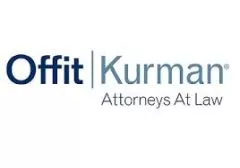- within Law Practice Management, Privacy, Food, Drugs, Healthcare and Life Sciences topic(s)
- with readers working within the Technology industries
On September 19, 2025, the Trump administration issued a Presidential Proclamation "Restriction on Entry of Certain Nonimmigrant Workers," effective at 12:01 a.m. September 21, 2025. The Presidential Proclamation specifically targets H-1B Visa Holders who are outside of the United States. Any H-1B visa holder attempting to enter the United States after the effective date must be accompanied by proof of payment of an additional $100,000 fee. This action created panic among large H-1B employers and employees as employees scrambled to return to the United States before the effective date and time. The Administration, through United States Citizenship and Immigration Services (USCIS), U.S. Customs and Border Protection (CBP), and the Press Secretary's office, had to "clarify" that their rule was only effective for new H-1B petitions.
USCIS Statement attempting to clarify the
situation:
This proclamation only applies prospectively to petitions that have
not yet been filed. The proclamation does not apply to aliens who:
are the beneficiaries of petitions that were filed prior to the
effective date of the proclamation, are the beneficiaries of
currently approved petitions, or are in possession of validly
issued H-1B non-immigrant visas. All officers of the United States
Citizenship and Immigration Services shall ensure that their
decisions are consistent with this guidance. The proclamation does
not impact the ability of any current visa holder to travel to or
from the United States.
Accordingly, individuals in H-1B status in the United States are unaffected. The vast majority of H-1B cases pending for this cap year will also not be affected. Individuals traveling outside of the country with valid H-1B visas or seeking to obtain renewal of an H-1B visa, will also be unaffected.
Instead, the focus will be on certain key groups. The first major group will be the new H-1B cap applicants in 2026. These applicants will be required to demonstrate payment of a $100,000 fee before filing their petition with the USCIS. Also, the effective date of the order will directly impact cap-exempt employers looking to hire new workers in H-1B status. These employers tend to be in research, medical, academia, and related fields. It should be noted that there is currently no guidance on how to make the fee payment.
Exemptions are also built into the order, but they are not specific. Currently, it appears that they may exist for an individual, a company, or potentially a whole industry, if DHS determines that it is in the national interest of the United States and does not pose a threat to the security or welfare of the United States. Crucially, the Proclamation does not address whether the fee and restriction apply to cap-exempt H-1B workers outside of the U.S., who are typically exempt from the majority of H-1B fees.
What should employers do?
We currently believe that international travel will not be affected
for the vast majority of H-1B visa holders. We recommend all
non-immigrant visa holders consult with counsel before
international travel, given the current climate. Employers and
individuals looking to apply in the 2026 H-1B lottery or seeking
employment with a Cap Exempt H-1B employer should seek legal advice
immediately.
How long is this effective for?
The Presidential Proclamation is effective for a period of 12
months.
What Happens in the future?
The proclamation is likely to face legal challenges as it directly
contradicts the will of Congress in the issuance of the H-1B visa
program and its implementing regulations, including the
introduction of application fees without notice and comment. Entry
of nonimmigrants, however, is controlled by the executive branch,
so potentially a modified version of this proclamation will
continue.
The content of this article is intended to provide a general guide to the subject matter. Specialist advice should be sought about your specific circumstances.


